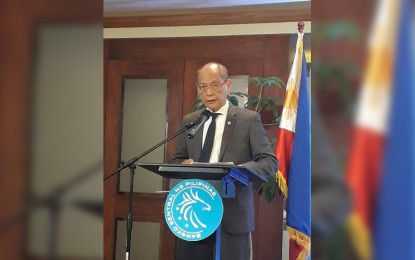
Sentral ng Pilipinas Governor Benjamin Diokno (File photo)
MANILA – Policies on the establishment of digital banks are expected to be ready before end-2020, Bangko Sentral ng Pilipinas (BSP) Governor Benjamin Diokno said on Thursday.
“The BSP is in the final stages of the policy formulation process. We hope to issue the policy before the end of the year,” he told journalists in a virtual briefing.
Diokno said the central bank will start accepting applications for authority to establish digital banks once the policies are ready but stressed that they will limit the number of players vis-à-vis the overall banking situation.
He said the pandemic increased the need to further speed up the shift towards a digital financial ecosystem, thus, the BSP has formulated a three-year digital payments transformation roadmap.
“This initiative fosters the creation of a digital financial ecosystem that is supportive of financial inclusion,” he said.
The BSP earlier set a goal to increase the share of electronic payments to 20 percent of total payment transactions in the country by 2020.
Diokno said the community quarantine provided a boost for this goal, thus, the change in the figures from 20 percent electronic payments by 2020 to about 50 percent of total transactions by 2023.
He said a major factor to this goal is the proposed regulatory framework on digital banks since these institutions “can help advance financial inclusion by addressing long-standing demand and supply constraints to delivering financial services.”
He said a digital bank is largely proposed to have a minimal to zero reliance on physical touchpoints.
And since these players are seen to have the same financial risks as banks with physical officials, “they are expected to adhere to the same standards of corporate governance and risk management commensurate to their business model and risk profile,” he said.
Diokno said digital financial institutions need to have governance management on information technology and cybersecurity, outsourcing, consumer protection, and measures against money and terrorism financing.
Relatively, Diokno said the BSP continues to push for effective cybersecurity measures to thwart any threats.
“As BSP supervised financial institutions adopt technology that is practically borderless, protecting data or their ‘crown jewels’ becomes more crucial,” he said.
Thus, he said banks now need to have a second look at their cybersecurity strategies and possibly adopt a shift to a “zero-trust” operational model.
“Strengthening data protection is in line with BSP’s broader efforts to boost BSP Supervised Financial Institutions’ cyber resilience,” he added. (PNA)
